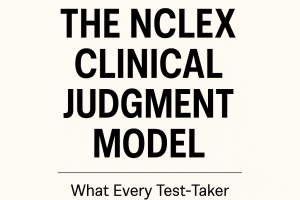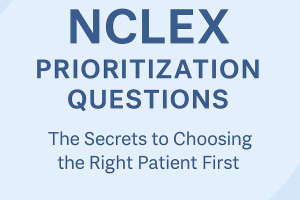FAMILY-CENTERED CARE IN PEDIATRICS: HOW IT IMPACTS NCLEX QUESTIONS

Introduction:
Family-centered care (FCC) is a cornerstone of pediatric nursing, emphasizing collaboration between healthcare providers, patients, and their families. This approach recognizes the vital role families play in a child’s health and well-being. For nursing students preparing for the NCLEX exam, understanding FCC is essential, as it frequently appears in various test questions. This blog will explore the principles of family-centered care, its impact on pediatric nursing, and how it influences NCLEX questions.
1. Principles of Family-Centered Care:
At its core, family-centered care is built upon four key principles:
• Partnership: Encouraging collaboration between families and healthcare professionals in decision-making processes.
• Communication: Providing clear, honest, and timely information to families to facilitate informed choices.
• Respect: Honoring the family’s values, beliefs, and cultural backgrounds.
• Compassion: Demonstrating empathy and understanding towards the child’s and family’s experiences.
These principles aim to create a supportive environment where families feel valued and empowered in their child’s care.
2. Impact of Family-Centered Care in Pediatric Nursing:
Implementing FCC in pediatric settings has been associated with numerous positive outcomes:
• Improved Health Outcomes: Children receive care tailored to their unique needs, leading to better health results.
• Enhanced Patient and Family Satisfaction: Families feel more involved and satisfied with the care process.
• Reduced Hospitalization Costs and Length of Stay: Effective collaboration can lead to more efficient care and quicker recoveries.
• Decreased Stress and Anxiety: Open communication and respect alleviate the emotional burden on families.
By fostering a collaborative atmosphere, FCC not only benefits the patient but also strengthens the family’s role in the care continuum.
3. Family-Centered Care and the NCLEX Exam:
The NCLEX exam evaluates a nurse’s ability to provide safe and effective care, with FCC being a critical component in pediatric nursing questions. Test-takers may encounter scenarios that assess their understanding of FCC principles, such as:
• Assessing Family Dynamics: Recognizing the family’s influence on a child’s health and incorporating it into care plans.
• Effective Communication Strategies: Demonstrating how to convey information appropriately to both children and their families.
• Cultural Competence: Respecting and integrating the family’s cultural practices into the child’s care.
• Advocacy: Empowering families to participate actively in decision-making and supporting their choices.
A solid grasp of FCC principles enables nursing students to navigate these questions successfully, reflecting real-world applications in clinical settings.
4. Sample NCLEX-Style Questions:
To illustrate how FCC concepts may appear on the NCLEX exam, consider the following sample questions:
Question 1:
A nurse is planning care for a 5-year-old child recently diagnosed with type 1 diabetes. Which action best exemplifies family-centered care?
A) Teaching the child how to self-administer insulin without involving the parents.
B) Providing the parents with educational materials and excluding the child from discussions.
C) Involving both the child and parents in education sessions about managing diabetes.
D) Referring the family to a support group without discussing it with them first.
Answer: C) Involving both the child and parents in education sessions about managing diabetes.
Rationale: Family-centered care emphasizes collaboration and inclusion of both the patient and family in the care process.
Question 2:
During a hospitalization, the parents of a pediatric patient express concern about the proposed treatment plan. What is the nurse’s best response?
A) Inform them that the medical team knows what is best for their child.
B) Encourage them to discuss their concerns and participate in decision-making.
C) Advise them to seek a second opinion if they are not satisfied.
D) Provide them with medical literature to read on their own.
Answer: B) Encourage them to discuss their concerns and participate in decision-making.
Rationale: This approach aligns with FCC by promoting open communication and partnership.
Question 3:
A family from a different cultural background has a hospitalized child. How can the nurse demonstrate respect for their cultural beliefs?
A) Assuming their beliefs are similar to other families from the same culture.
B) Asking the family about any cultural practices they wish to incorporate into the child’s care.
C) Informing them that hospital policies override cultural practices.
D) Avoiding any discussion about culture to prevent discomfort.
Answer: B) Asking the family about any cultural practices they wish to incorporate into the child’s care.
Rationale: Respecting and integrating cultural practices is a key aspect of FCC.
Question 4:
A nurse notices that the parents of a hospitalized child appear anxious and withdrawn. What is the most appropriate nursing intervention?
A) Providing them with pamphlets about coping strategies.
B) Encouraging them to take a break and leave the hospital.
C) Engaging them in a conversation to express their feelings and concerns.
D) Reassuring them that the healthcare team is handling everything.
Answer: C) Engaging them in a conversation to express their






